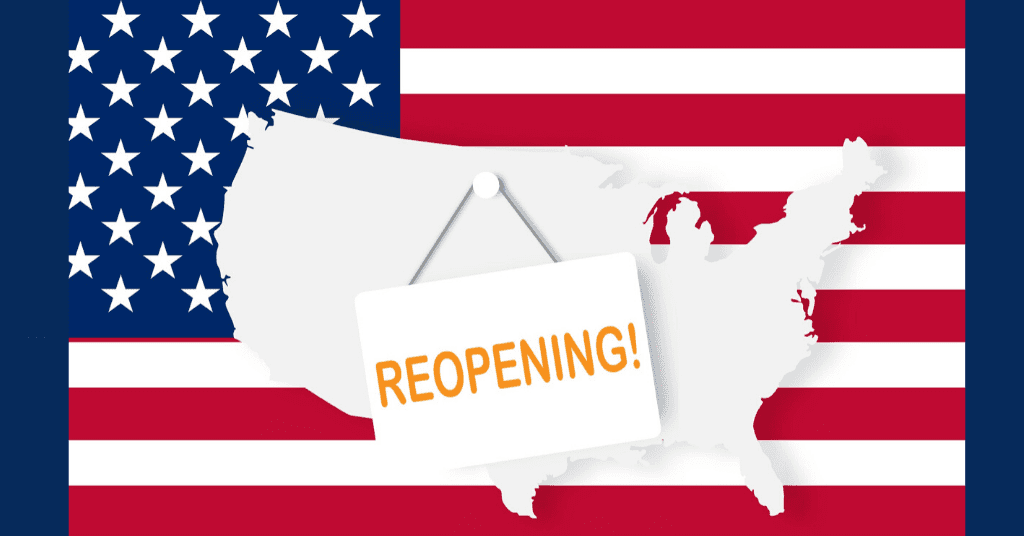The California Occupational Safety & Health Standards Board (OSHSB) planned to review proposed changes to the COVID-19 Emergency Temporary Standard (ETS) on May 20th. However, when the Centers for Disease Control and Prevention (CDC) released guidance on May 13th, Cal/OSHA asked the OSHSB to wait on its consideration of the proposed change.
What Did the CDC Say?
The CDC published a notice advising that fully-vaccinated people could resume pre-pandemic activities without masks. The CDC stated:
Fully vaccinated people can resume activities without wearing a mask or physically distancing, except where required by federal, state, local, tribal, or territorial laws, rules, and regulations, including local business and workplace guidance.
In light of this news, Cal/OSHA asked the OSHSB to hold off on its consideration of the COVID-19 Emergency Temporary Standard until Cal/OSHA could “revisit the proposed COVID-19 prevention emergency regulation in light of this new guidance.” As a result, the Division requested that the Board not vote to approve the current proposal before it, and instead allow us to present a new proposal at a future meeting.
Has Cal/OSHA Published New Draft Regulations?
Yes. A few weeks later, Cal/OSHA now published its new draft regulations. These new regs look to be more restrictive than the earlier proposal. The OSHSB was scheduled to consider the new proposal at its June 3, 2021 meeting.
The new proposal can be found here.
What’s Different in the Latest Proposal?
Cal/OSHA’s new proposed regulations fail to include many of the most sought-after updates on mask usage by California business owners. In some areas, the new proposal looks to be more restrictive with a number of measures when compared to the earlier proposal, even in light of the CDC’s recommendation that individuals who are fully vaccinated may resume pre-pandemic activities.
Here are some of the changes from the earlier proposal:
- Employers are prohibited from immediately eliminating physical distancing for fully vaccinated work locations, but must keep the measures in effect until July 31, 2021;
- The testing of symptomatic employees is required, and employers are required to make COVID-19 testing available at no cost to employees with COVID-19 symptoms who aren’t fully vaccinated, during employees’ paid time. This is different from the proposal which didn’t require this until July 31st;
- Fully-vaccinated employees who test positive for the coronavirus must still quarantine away from work for 10 days after the positive test—even if asymptomatic;
- After July 31, 2021, employers are to be required to provide respirators to all employees who aren’t fully vaccinated for voluntary use in compliance with § 5144(c)(2);
- Cleanable solid partitions in fully-vaccinated worksites are still required;
- At “outdoor mega events,” which is defined as an event with 10,000+ participants or spectators outdoors, must continue mitigation measures; and
- Employers must notify employees of the benefits of the COVID-19 vaccine, including information on the employer’s COVID-19 policies; how to access COVID-19 testing and vaccination; and the fact that vaccination is effective at preventing COVID-19, protecting against both transmission and serious illness or death.
The Cal/OSHA proposed regulations say that “fully vaccinated” means:
[T]he employer has documentation showing that the person received, at least 14 days prior, either the second dose in a two-dose COVID-19 vaccine series or a single-dose COVID-19 vaccine. Vaccines must be FDA approved or have an emergency use authorization from the FDA.
The definition differs from the CDC’s definition of “fully vaccinated,” which is two weeks after their second dose in a two-dose series, such as the Pfizer or Moderna vaccines; or two weeks after a single-dose vaccine, such as Johnson & Johnson’s Janssen vaccine.
Takeaway
In an about-face from the CDC’s May 13th guidance, California employees who are fully vaccinated are required to continue to wear face coverings while indoors and in mixed company with employees who aren’t fully vaccinated.
California employers with workers who are traveling internationally and have received the AstraZeneca or Sinopharm vaccines technically do not satisfy the qualifications under the new proposed ETS. As a result, these employees would have to be treated as if they were unvaccinated.
Contact Us
For help with the ETS in your business, contact Danielle G. Eanet or call the firm at (310) 997-4185. We can help your business develop an effective written COVID-19 Prevention Program, as well as policies and procedures that take into account the new emergency regulation and the proposed regulations if and when they are approved.
Eanet, PC is a boutique law firm located in Los Angeles, California specializing in business litigation, real estate litigation, labor and employment litigation, and employment advice and counsel. We provide advice to help employers remediate pay inequities identified through an audit or otherwise. We also represent California employers facing sexual harassment, wrongful termination, equal pay and retaliation and discrimination claims under California and federal law.


